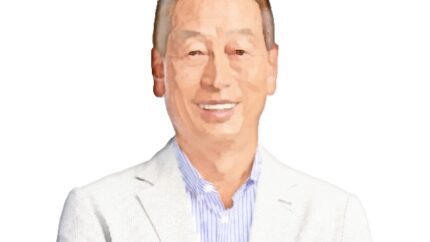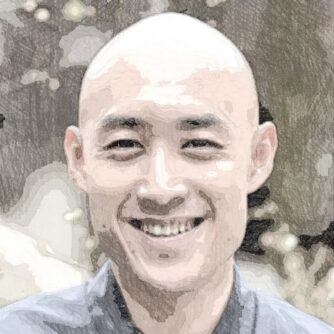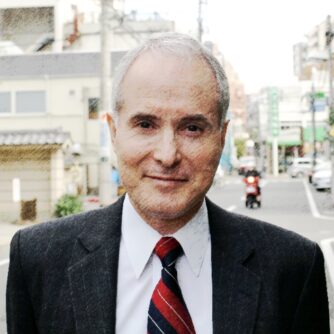Known as “Tani” to his friends abroad, Masahiko Uotani is my hero. Shiseido was one of our initial investments in January 2009, when I launched with my partners the Commons 30 Fund, a “cross generational” long term investment fund in Japanese companies. We had made the investment based on the thesis that Shiseido’s sense of beauty would have appeal and thus growth potential in Asia. However, the first several years were a very slow painful decline. That is when Tani appeared out of the blue and saved the day. Because of the spectacular turnaround of a traditional Japanese company, Tani is one of the most recognized CEOs in Japan, and the world.
https://corp.shiseido.com/en/company/board/
Shiseido is a leading Japanese beauty products company, and, according to Tani, their corporate purpose is to support people around a world have happy lives with a smile. Therefore, selling cosmetics is not the objective of their 150 year heritage, but rather the means.
As the first CEO in Shiseido’s long history to arrive from outside the company in 2014, Tani believed that his job was not just to make profits for next year, but to transform the company and build the foundations so that Shiseido will thrive for another 100 years.
However, because Tani’s previous managerial experience was with Coca Cola Japan, he didn’t know the cosmetics business. Therefore, he decided to talk to Shiseido’s customers all around the world. He found that “beauty” is perceived differently in different regions.
In New York, beauty and cosmetics meant getting confidence energized.
In Paris, beauty meant fragrance where, for example, ladies changed it when their relationship with their boyfriends changed.
In Beijing, ladies pointed out that it was not just about external appeal, but also emphasis on internal holistic beauty of body and mind.
In Seoul, where plastic surgery and vivid make up is common, it was creating how you look.
And, in Tokyo, Tani found that it was about having basic manners when going out, a part of ladies’ etiquette.
Beauty is all about how it is perceived and is used differently based on cultural background. Therefore, as a global beauty products company, Shiseido must be connected to each culture. Shiseido is currently present in about 120 companies around the world, and their mission is “Beauty Innovation for a Better World.”
According to Tani, “Beauty Innovation” means delivering new value to consumers. Cosmetics are used every day, but every day is different. Consumers are different, and therefore, beauty must be personalized.
Shiseido utilizes DX (digital transformation), where each customer can have access to their different skin conditions through a smartphone, as well as digital mirrors which analyzes skin conditions that are personalized. Customers can also receive feedback in 2 weeks to monitor how skin conditions have changed.
Tani believes that beauty products are not a just one-time purchase, but rather a lifetime personalized relationship with each customer.
As a business, Tani’s managerial experience at Coca Cola and Shiseido tells him that the fundamentals are basically the same. The product is different, and the service and contents are different, but the basic formula for business is the same. It is about creating relationships with consumers and brand value.
After Coca Cola’s operations in Japan, Tani was running his own boutique marketing consulting firm with about 10 people, when he was approached by the former president of Shiseido, Shinzo Maeda. He wanted to change the company, and asked Tani to be their advisor in a marketing project.
Having a blue-chip client like Shiseido was a surprise and an honor for the boutique marketing consulting firm. At the time, Shiseido was developing new products in 3 existing brands, Elixir, Maquillage, and Ultimune, and Tani was invited to give advice regarding designing the value of the brand. He used his usual angle, “Are you really looking at the consumers?”
The project consisted of new product brand development, brand strategy, process capabilities, as well as organizational strategy. At the time, Shiseido did not have a brand management group.
After about 5 months, a strange thing happened to Tani. 2 external board directors asked for meeting with him. They wanted to hear an objective point of view Shiseido from the outside. Tani felt he had nothing to lose. He was quite honest regarding issues in marketing and sales branches, and the two directors thanked Tani for his candid view.
Then the following week, another external director and the corporate auditor asked Tani out for dinner. Tani felt something very strange is going on here. However, he felt respect that they were committed to turn around the company.
Then, the external director that he had the initial conversation asked out Tani for dinner for another chat. He confided with Tani that they were considering succession of the CEO, and that even though they have some internal candidates, because of the nature of challenges that were necessary, they have an idea of welcoming a candidate from the outside.
Tani said, “Wow, such a traditional Japanese company like Shiseido welcoming a CEO from the outside would be a symbol of change for Japan, who is it?” The director replied, “It’s you.”
Tani was shocked and answered that he was honored but he has his small company, and that he would need to get approval from his wife who was sick and tired of him working late with frequent business trips while at Coca Cola.
So, he asked his wife and daughter. They said, “No, you are going to kill yourself.”
He talked with his partners. They said, “No, if you leave, what will happen to this small company with employees who joined because of you.”
With two strikes, Tani confided with only one other person, his mentor, Takeo Shiina, former CEO of IBM Japan. He said that Shiseido is a symbol of Japan, a kind of national treasure. But they are struggling, and it is very unusual that they are asking you, someone form a foreign based company, an outsider.
“They are demonstrating a very strong sense of crisis and urgency. It is a big decision for them to make. They are counting on you. If you take on this challenge, it means you are contributing to Japan.” This advice from his mentor, moved Tani.
When the board decision was made official, a press conference was held in the afternoon, and it became the top news of the day. Tani’s friends who were very surprised by the news started calling him and sending him email messages. Next morning, Tani thought that if his friends were surprised, then the employees and families of Shiseido must also be very surprised, wondering who was this guy that was named president of their company. They had never heard of him.
When he arrived at Shiseido, Tani said that he wanted to have a tour of the company. He visited all floors of the headquarter building and said, “Hello, I am the guy you saw on TV last night, I am your new president.” The employees were really shocked. This has never happened before. The president himself is coming to our floor.
Tani didn’t know that it was the first time. It was his style. He told the people, “This is a great company. We will make it better. I am committed.” Then, he went to the other buildings.
Tani wanted to show them his style of management, that he wanted to be the part of the team. Tani believes that being a CEO is simply a role. However, traditionally in Japan hierarchy is the rule and the president usually sits way up on top, far from other parts of company. Tani knew that this was the traditional culture of corporate Japan, and Shiseido was one of them He was determined to break it.
A CEO has to take responsibility and must be held accountable. But the CEO is a person, and in that respect, Tani believes that he is no different. He continued to talk to the front line of company such as the beauty consultants who are at the point of relationship with the customers.
Shiseido employs about 9,000 beauty consultants in Japan, and another 20,000 all over world. Tani believes that he has met almost all of them. He visited the distribution center in Ohio in the United States, as well as France and Japan. After 7 years Tani says that he has had meetings with about 85,000 employees cumulative, out of 45,000 globally.
When he introduced himself to the employees and asked them what kind of issues that they are facing, the typical reaction was, “I am not going to take any risk to tell the president of the company what the issues are.” So, Tani used his sense of humor, try to get them to smile first, to open up their minds. And, gradually, they started to talk.
During one of his first rounds at a department store, he was talking to the beauty consultants. They were quite nervous at the beginning, but after warming up they pointed out that they don’t have any samples to give to their customers. Cosmetics are quite expensive products, and customers need confidence to purchase it.
The reason they had no samples was that they had to get approval each time to headquarters that controlled the budget. Tani thought that this situation was wrong. The beauty consultants at the point of customer relationship should be controlling the budget.
However, Shiseido’s management process was that headquarters controlled the budget, while doing business all around world. Culture was such that headquarters didn’t trust the judgement of the people in the field. Tani called the finance manager at headquarters and told him that, from tomorrow, a budget will be allocated to the field to manage on their own.
Tani went to the R&D department to introduce himself, since their activities were the lifeline for Shiseido. Everybody was very quiet. Then a relatively young lady raised her hand. She said, “We have heard of transformation, transformation, transformation, countless of times. But nothing has worked. How can we expect someone from the outside to change that?”
Tani thanked her for the very straightforward comment. He admitted that “Frankly I have no idea what I can tell you. Just changing the CEO won’t work, but I will give it my best. The CEO is not going to make the change. You are going to change the company.”
Tani attended a party with the sales group. After some drinks, a young lady stood up with microphone and said, “President, I have to tell you. This is my 7th year in this company after graduating from school, and I have never achieved my sales target. It is a shame. I want to win. Can you tell me how I can win?”
Tani was so touched. He knew that they can really win, since he has seen so many passionate and energetic people. He realized that his role was not to recreate the company, but rather to unleash the people.
In New York, Tani was interviewing a candidate for a senior position. He asked her as an experienced manager in a French cosmetics company, what was her impression of Shiseido. The candidate replied, “We all know Shiseido because of the technology and high quality. But, Shiseido is a sleeping beauty.” She joined.
Through his talks with the employees Tani found a couple of words that was often repeated. One was “ichigan,” a spirit of one united force. Therefore, Tani launched the “Ichigan Project.”
The other word was “waku-waku,” creating a happy uplifting feeling. Everyone said that the delivering “waku-waku” to the consumer was our mission. Tani felt that this was good, but before you give “waku-waku” to your customers, you have to have “waku-waku” yourself.
Tani found so many good things going on within the company, so he decided to always carry around “waku-waku cards” in his pocket. When he discovered some achievements by individual employees, he took out the card, wrote their name and short comments, and signed it. A very small token of recognition. But employees got very excited when they received the “waku-waku card” from the president of the company. They were proud of it and often displayed it on their desk. CEO is also a human being, so upon seeing that, Tani also got really motivated.
Finally, turning to the topic of corporate governance, when Tani joined Shiseido in 2014, he did not have firsthand experience with corporate governance since he was managing a 100% subsidiary of Coca-Cola US. So he learned on the job every day. Tani felt that corporate governance was a sense of how a CEO should behave, make decisions, and get shareholders’ perspectives into business. In essence, it was common sense, and not a difficult task.
Tani came to believe that everything that Shiseido does is based on corporate governance. When a company delivers new ideas and innovations, and customers and society find value, they pay money for that. This will lead to increase sales and profits, which benefits the shareholders and investors. And, in the middle of all this are the people working at the company.
Tani believes that corporate governance is about making balance, and not just skewed towards shareholders. Employees are important, and it is the customers that obviously pay for the value created by the company. Corporate governance will tell management what to do, especially when decisions need to be made about investing in the business.
Shareholders expect board members to assume strong responsibility, and when the management operating team needs to make an important decision for board approval, they are careful about always being very transparent regarding the risk involved.
The corporate board, Tani believes, should be an open community where sense of responsibility with integrity is shared by the members. It is not just for advice, not just for approval, but also providing strong support to the business when the decision is made. Once a certain position is approved, it is not just CEO’s decision, but it is a board decision. So, Tani expects board members to spend more time for commitment and have a sense of ownership.
Regarding Shiseido’s board member composition, 50 percent from outside is the minimum, and the near future, outside directors may be the majority. Regarding the skill set, Shiseido requires a diverse background from their directors, such as those with managerial experience at large public companies, global consulting, law, as well as starting a venture business. In addition to external board directors, external auditors also play a very valuable role in the board decision making process.
Because of the diverse composition, even after preparing carefully for the presentation to board, some directors give completely unexpected questions and push back. This leads to a healthy debate, and sometimes Tani and the operating team is not able to react adequately, so they must take it back to reconsider. In one proposal regarding an M&A transaction, they concluded not to pursue it. Tani feels that this is very important.
Stay tuned for Part 2 of my conversation with Tani, where we will discuss the people factor and transforming the culture of the company.



